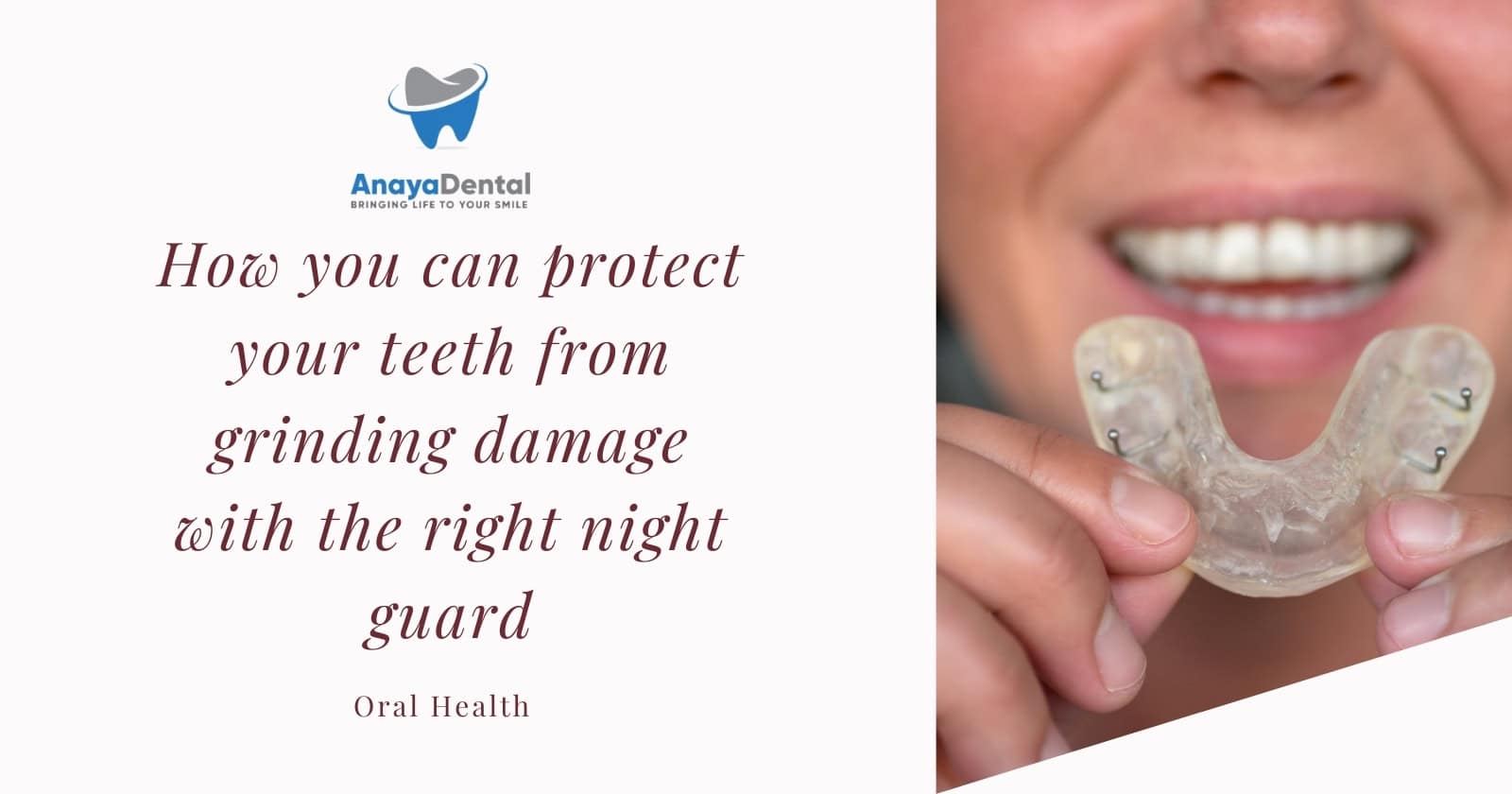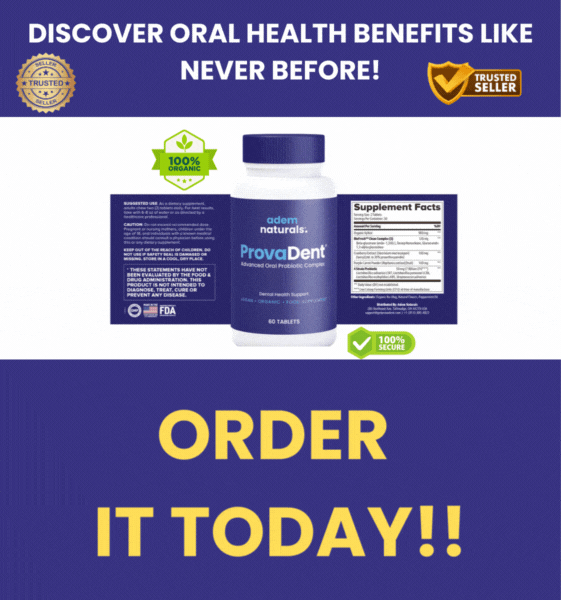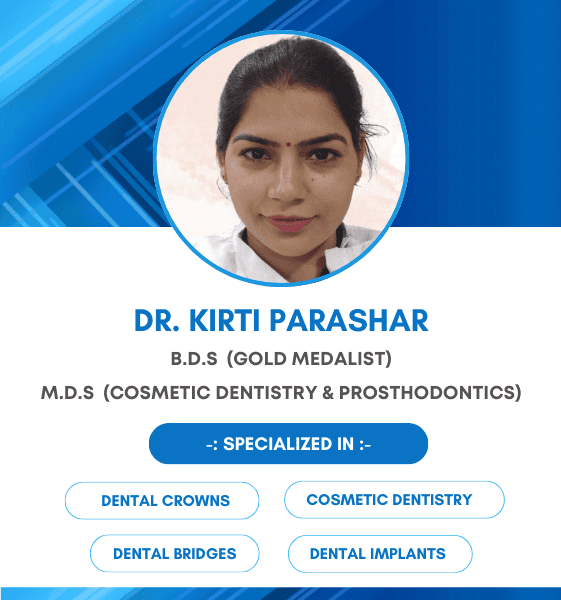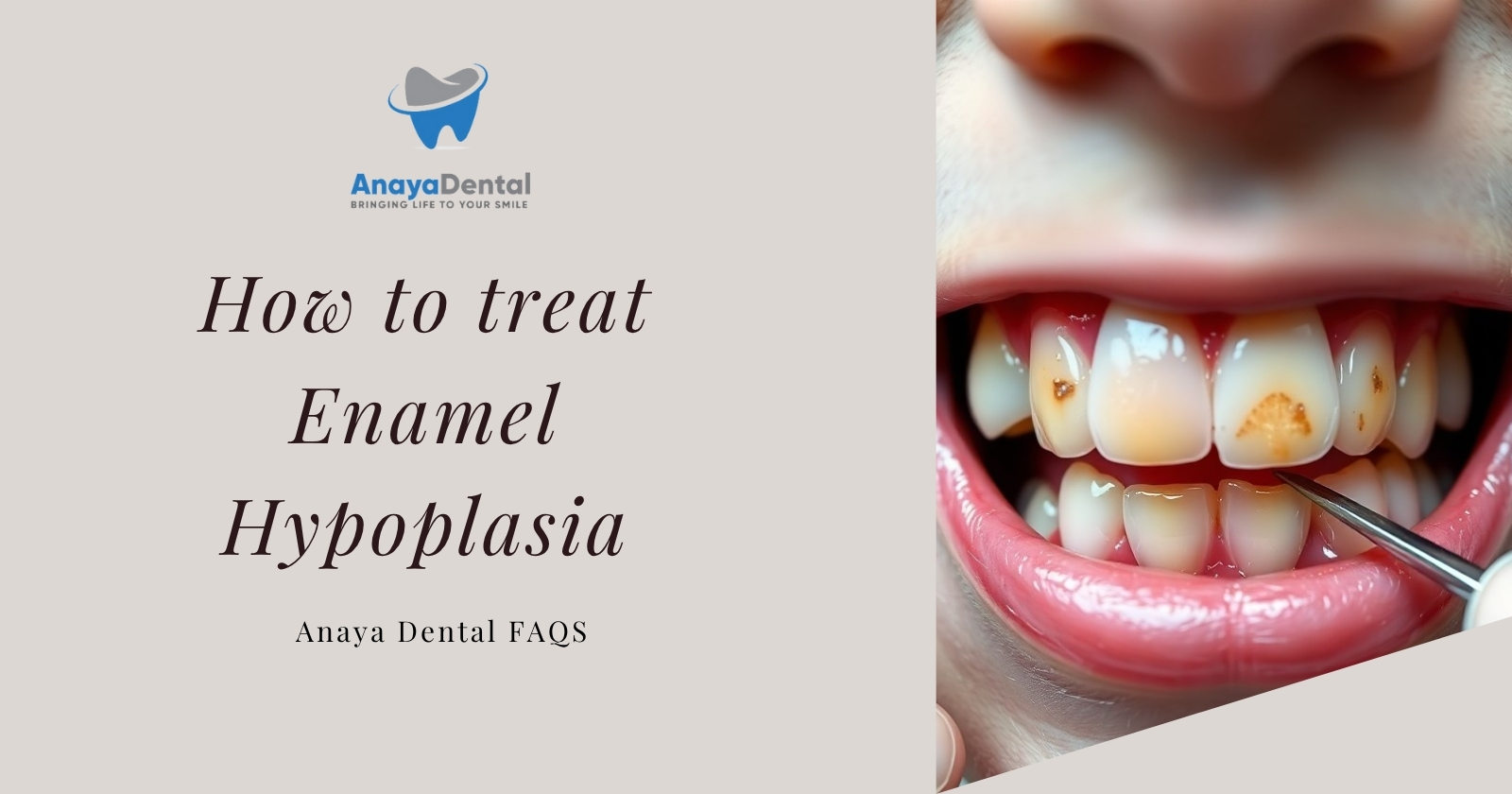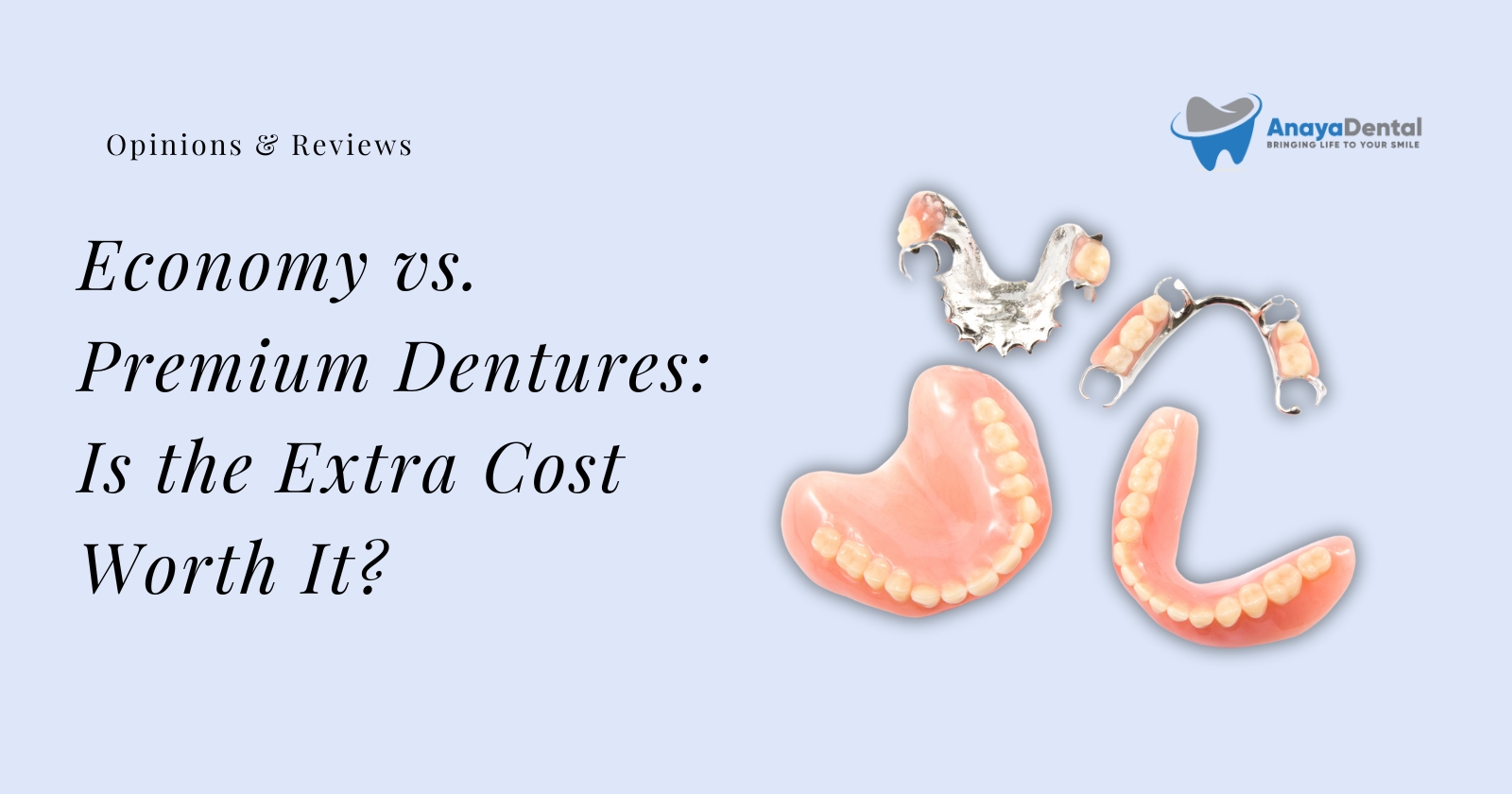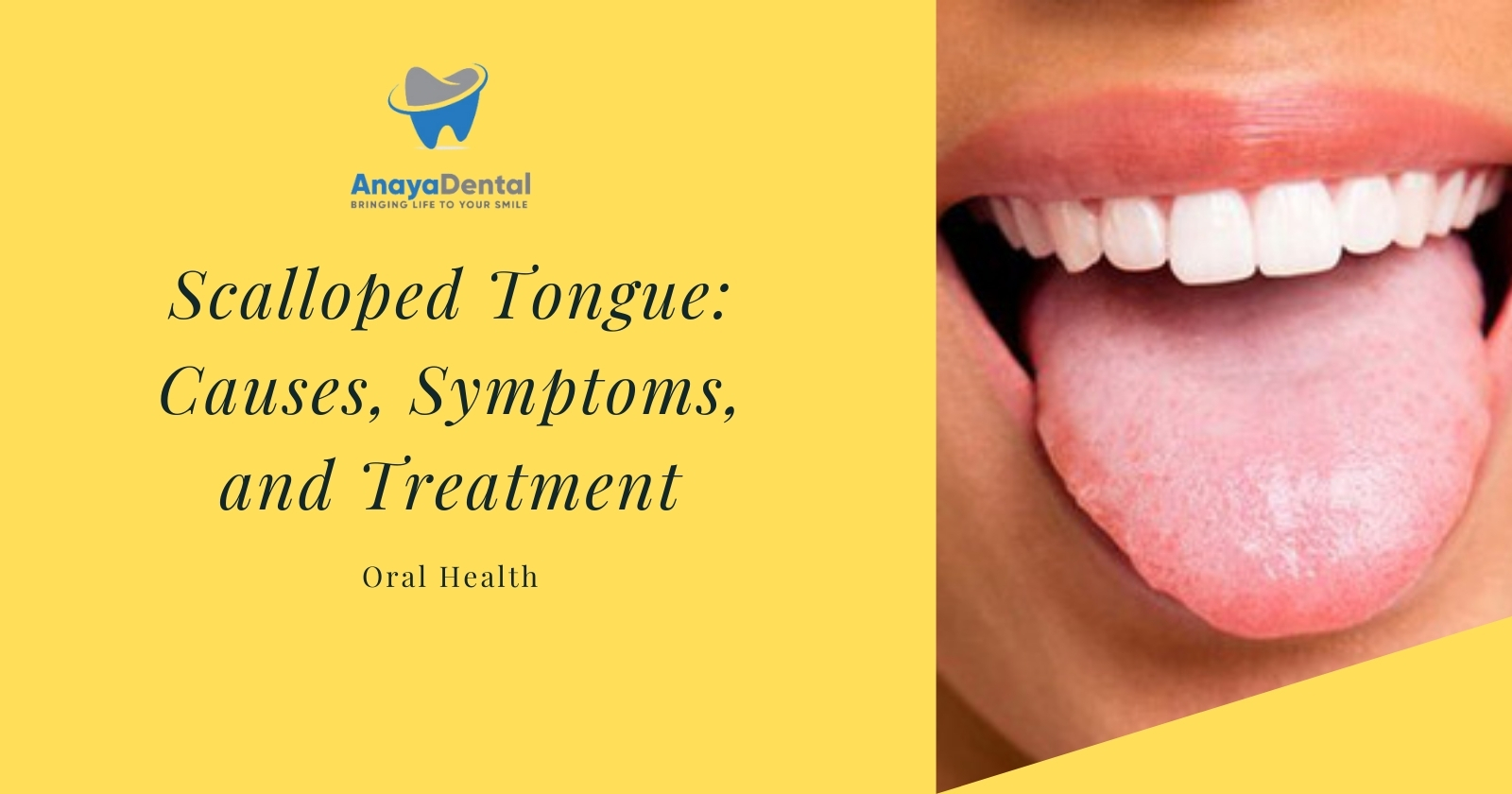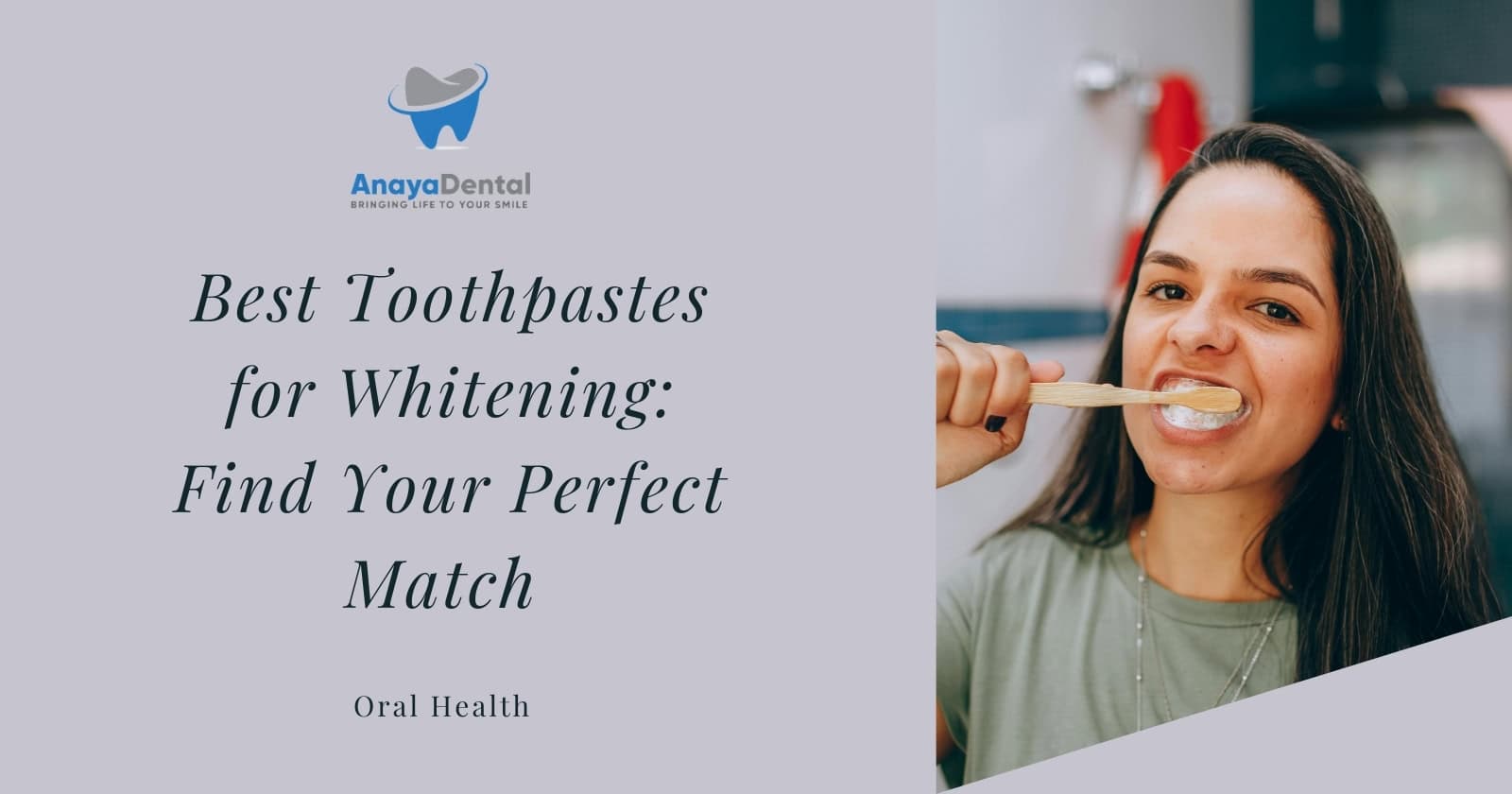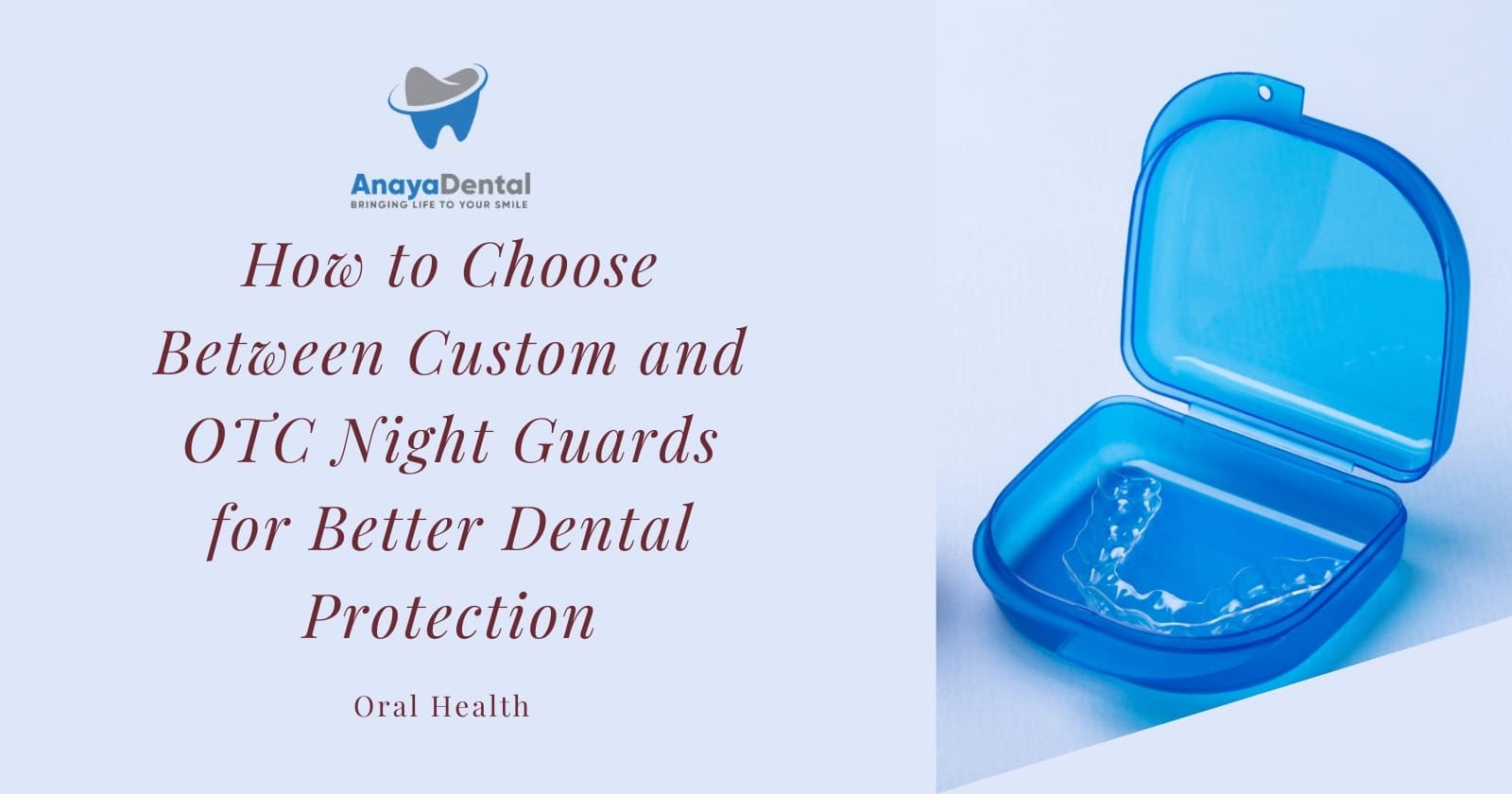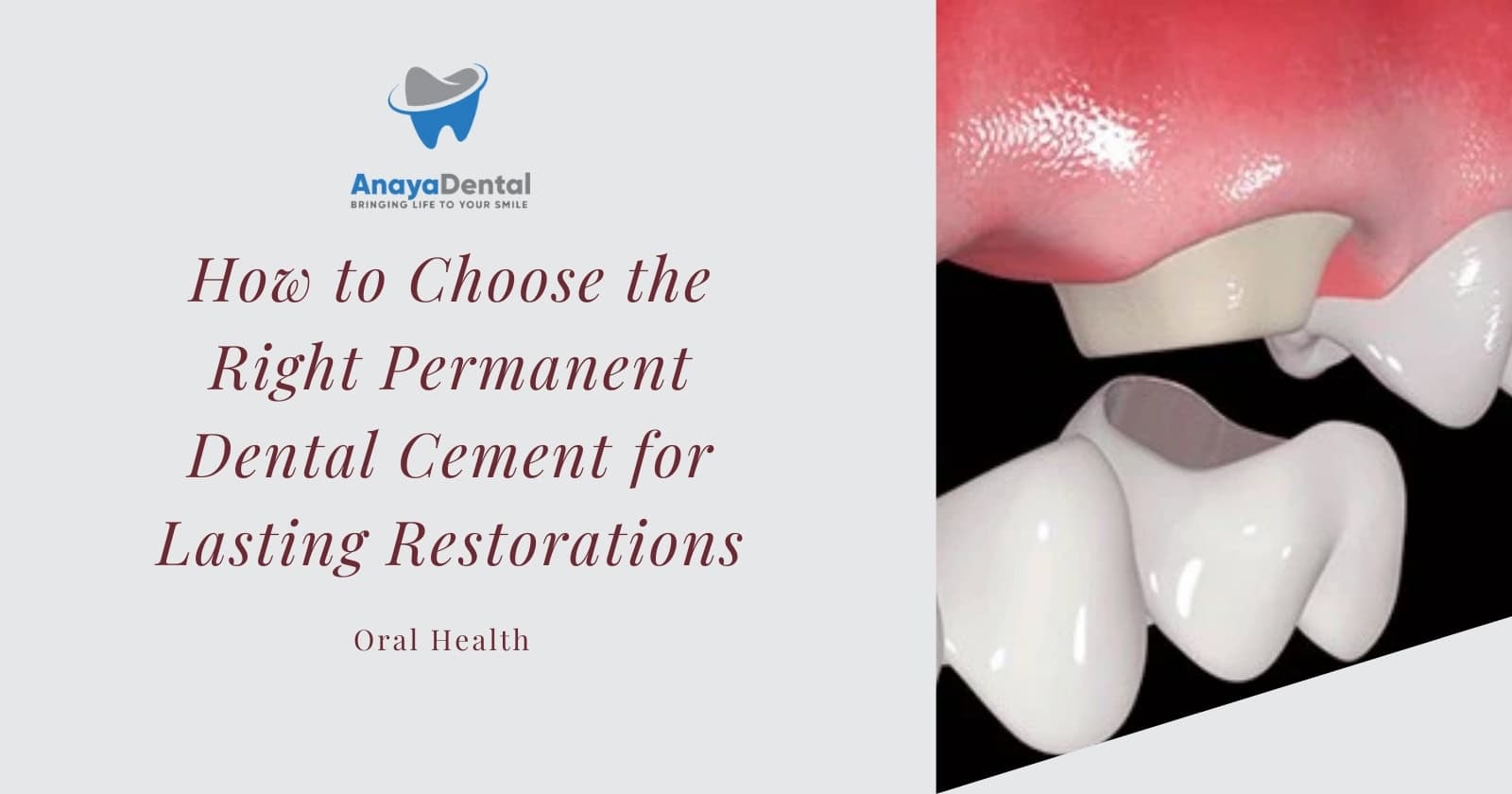How you can protect your teeth from grinding damage with the right night guard
Do you wake up with jaw pain or headaches? Your body might be telling you something important about what happens while you sleep. Teeth grinding (bruxism) affects countless people worldwide, often occurring unconsciously during sleep. The consequences can be serious – from worn enamel and sensitive teeth to jaw disorders and sleep disruption.
Fortunately, a properly fitted night guard creates an effective barrier against these harmful forces. This guide explores the most effective night guards available in 2025, helping you select the perfect solution for your needs.
Why teeth grinding demands your attention
Teeth grinding represents one of the most destructive functional disorders affecting oral health. Medical experts define bruxism as “a repetitive activity of grinding teeth through lateral or protrusive movements of the mandible” that can lead to numerous complications when left untreated.
Try Our Dental Calculators

Long-term consequences of untreated grinding include:
- Accelerated tooth wear and fractures: The constant grinding motion wears down enamel, potentially exposing inner dentin and leading to increased risk of tooth fractures
- Gum recession and sensitivity: The excessive forces can cause gums to pull away from teeth, exposing sensitive root surfaces and creating painful reactions to hot, cold, or sweet foods
- Chronic headaches and muscle tension: The repeated muscle contractions during grinding often lead to tension headaches, particularly in the temples and forehead areas
- Temporomandibular joint (TMJ) disorders: Prolonged grinding stresses the jaw joint, potentially causing clicking, popping, pain, and limited jaw movement
- Sleep quality deterioration: Though you may not wake fully, grinding disrupts your sleep cycle, reducing overall rest quality and leading to daytime fatigue
- Aesthetic changes: Prolonged grinding can lead to enlarged jaw muscles (masseters), creating a characteristic square-jawed appearance from muscle overdevelopment
The impact worsens over time, with research showing tooth wear increases significantly with age. While no permanent cure exists for nighttime teeth grinding, protective night guards represent your most effective defense against further damage, according to the Sleep Foundation.
Your options: Custom vs. store-bought night guards
Night guards fall into two primary categories, each with distinct advantages and limitations.
Custom-made night guards
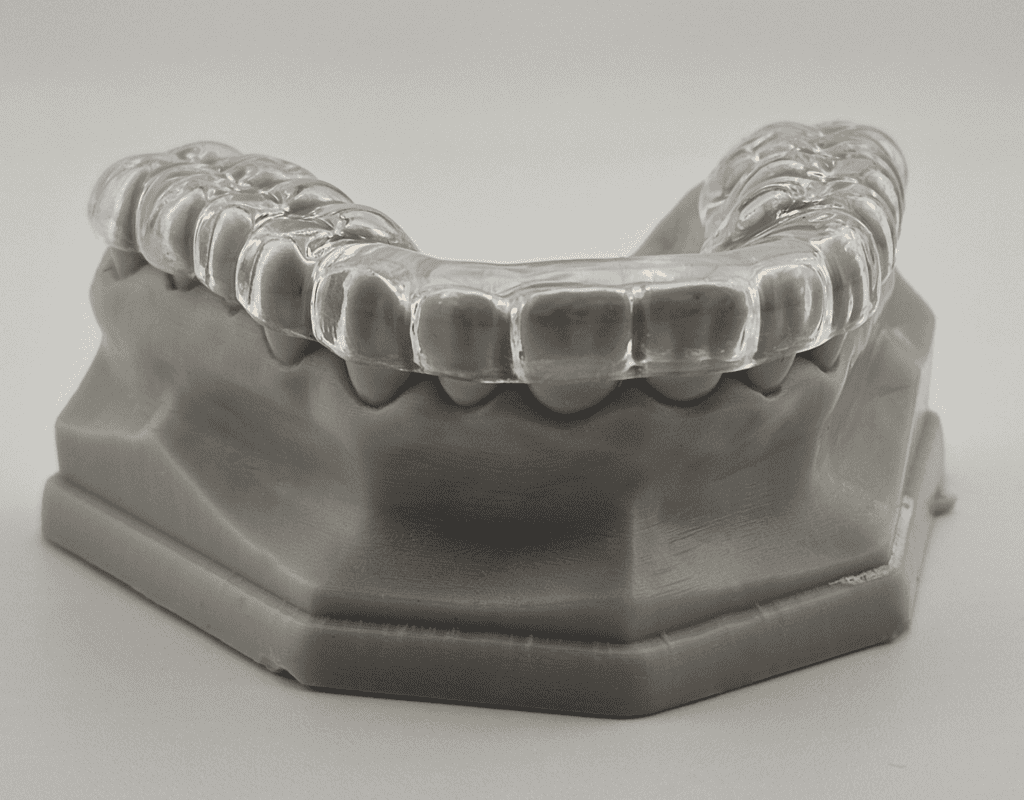
According to Inglewood Family Dental, custom night guards start with precise dental impressions, creating a perfect match for your unique dental structure. These guards provide:
- Exact anatomical fit: Created from dental impressions, custom guards follow every contour of your teeth, providing superior protection and stability that generic options simply cannot match
- Superior comfort: The precise fit means less bulkiness and no uncomfortable pressure points, significantly increasing the likelihood you’ll wear it consistently throughout the night
- Proper bite alignment: Custom guards maintain your natural bite relationship, preventing uneven pressure that could lead to additional jaw problems or tooth movement
- Potential relief from pain: The precisely balanced bite position can actually help reduce existing jaw pain for many patients, rather than merely preventing further damage
You can obtain custom guards through dental professionals or reputable online services offering at-home impression kits.
Over-the-counter night guards

Over-the-counter (OTC) guards represent mass-produced alternatives available without prescription, as noted by NewMouth. These options typically offer:
- Universal or limited sizing: These products generally come in small, medium, or large versions with boil-and-bite technology to attempt customization, though the fit remains noticeably less precise than true custom options
- Lower upfront investment: With prices typically ranging from $15-35, these guards cost significantly less initially than custom alternatives, making them appealing for those uncertain about their grinding habits
- Immediate accessibility: Available at most pharmacies and online retailers, you can purchase and begin using these guards the same day without waiting for dental appointments or custom fabrication
- Protection quality variations: Research shows considerable differences in material quality and durability among OTC brands, with many providing adequate protection only for mild grinding cases
While more accessible, these generic guards usually provide less protection than custom options due to their imprecise fit, according to dental specialists. Dental professionals generally advise against them for severe grinding cases or individuals with jaw-related complications.
Night guard materials: Finding your perfect match
Night guards utilize various materials designed to address different grinding severity levels:
Soft night guards
- Composition: Flexible thermoplastic or soft vinyl
- Thickness: Approximately 1.5mm
- Ideal for: Mild grinding or primarily clenching behaviors
- Advantages: Comfortable cushioning; budget-friendly
- Limitations: Less durable against aggressive grinding
Hard night guards
- Composition: Durable acrylic material
- Thickness: Approximately 1.5mm
- Ideal for: Severe grinding and intense clenching
- Advantages: Maximum durability; exceptional protection
- Limitations: Initial adjustment period; potentially less comfortable
Hybrid (dual-laminate) night guards
- Composition: Hard exterior layer with soft interior lining
- Thickness: Approximately 2mm
- Ideal for: Moderate to heavy grinding
- Advantages: Combines durability with comfort; balanced protection
- Limitations: Slightly bulkier than single-material alternatives
Ultra-thin night guards
- Composition: Thin acrylic material
- Thickness: Approximately 1mm
- Ideal for: Daytime grinding or clenching
- Advantages: Minimal profile; allows normal speech
- Limitations: Insufficient for aggressive nighttime grinding
Top night guard recommendations for 2025
Based on extensive testing, professional dental feedback, and user experiences, these options represent the most effective night guards currently available:
Best overall protection: New Smile Life custom night guard

- Type: Hard acrylic (dual-layer option available)
- Price range: $149-$199
- Key features: Dentist-grade custom fit, 2-3 millimeters thickness
- Expected lifespan: More than five years with proper maintenance
- Optimal for: Severe grinders, TMJ sufferers, long-term protection
- Why it stands out: 30-day satisfaction guarantee, fabricated from precise dental impressions
Best TMJ relief option: Pro Teeth Guard hybrid night guard

- Type: Dual-laminate (soft inner cushion, hard outer protection)
- Price range: $169-$179
- Key features: Jaw-friendly interior, resilient exterior
- Expected lifespan: Three to five years
- Optimal for: TMJ discomfort, moderate to severe grinding
- Why it stands out: Perfect balance between cushioning comfort and robust protection
Best budget custom solution: Remi custom night guard

- Type: Medium-density thermoplastic
- Price range: $99-$229
- Key features: At-home impression process, sleeker profile
- Expected lifespan: Two to three years
- Optimal for: Value-conscious buyers wanting custom benefits
- Why it stands out: More affordable entry point to personalized protection
Best temporary solution: Plackers Grind-No-More

- Type: Disposable thermoplastic
- Price range: $17-$25 (multi-pack)
- Key features: No molding required, universal fit
- Expected lifespan: Three days per guard
- Optimal for: Travel, temporary needs, or assessing if you need a guard
- Why it stands out: Affordable short-term solution without commitment
Best adjustable alternative: SleepRight Dura-Comfort dental guard
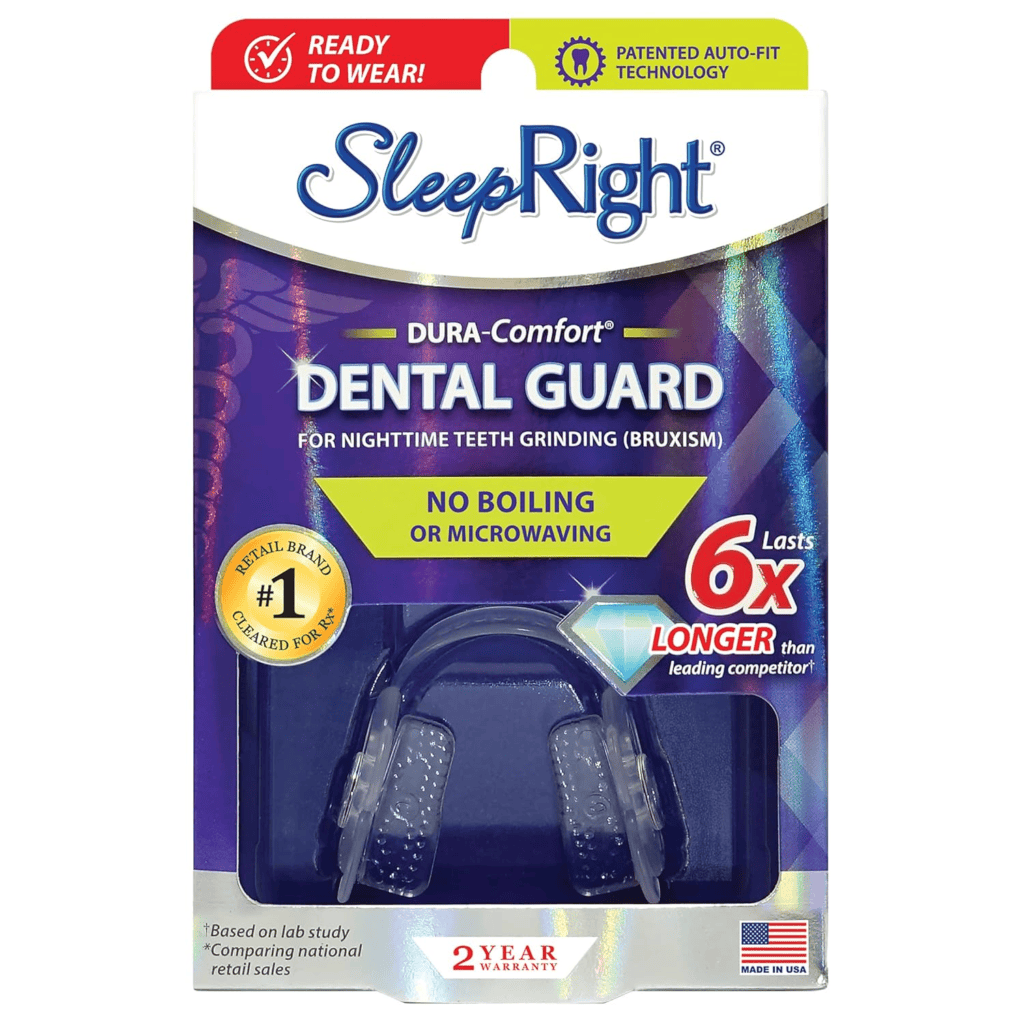
- Type: Soft silicone with adjustable design
- Price range: $33-$35
- Key features: Adjustable sizing, pivoting pads matching bite angle
- Expected lifespan: Three to six months
- Optimal for: First-time users, sensitive gag reflexes
- Why it stands out: No heating or molding process required
Best for extreme cases: Sentinel Extreme hard night guard

- Type: Extra-thick hard acrylic
- Price range: $189
- Key features: 3 millimeters thickness, custom-fabricated from impressions
- Expected lifespan: Extended durability even for aggressive grinders
- Optimal for: Extreme grinding intensity
- Why it stands out: Maximum protection against severe bruxism
Custom vs. ready-made: Making your decision
The choice between custom-fitted and over-the-counter night guards involves several crucial considerations:
Effectiveness comparison
Custom night guards deliver superior protection through their precise fit that perfectly aligns with your unique bite pattern. This exact match helps prevent tooth shifting and minimizes the destructive forces generated during grinding. While OTC guards serve a similar purpose, they typically cannot provide comparable protection due to their generic construction.
Comfort and usage consistency
Perhaps the most significant advantage of custom guards is comfort. A better fit dramatically increases the likelihood you’ll wear the guard consistently throughout the night – essential for effective protection. Many users abandon poorly-fitting OTC guards due to discomfort, negating any potential benefits.
Financial considerations
While custom night guards require a higher initial investment ($99-200) compared to OTC alternatives ($16-35), they typically offer better long-term value through extended durability. A quality custom guard lasting 3-5 years often proves more economical than repeatedly purchasing OTC guards requiring replacement every few months.
What dental professionals recommend
Dental professionals at the Sleep Foundation overwhelmingly recommend custom-fitted night guards, particularly for patients with:
- Severe bruxism patterns: Patients exhibiting aggressive grinding require the maximum protection only custom guards can provide, as OTC options often wear through quickly under intense grinding forces
- TMJ disorders or symptoms: The precise fit of custom guards helps maintain proper jaw alignment, potentially reducing TMJ symptoms rather than exacerbating them with improper positioning
- Extensive dental work: Those with crowns, veneers, bridges or implants have significant investments to protect; custom guards distribute forces evenly to safeguard these restorations
- History of dental damage: Patients who have already fractured or severely worn teeth demonstrate grinding intensity that generally requires professional-grade protection
Maintaining your night guard’s effectiveness
To maximize your night guard’s lifespan and protection, dental experts at the National Center for Biotechnology Information recommend these essential care practices:
- Thorough rinsing: Always rinse with cool water before and after each use to remove bacteria and prevent plaque buildup that can transfer to teeth
- Gentle cleaning: Use a soft toothbrush with mild soap (not toothpaste, which contains abrasives that can scratch and create bacterial hiding places)
- Proper storage: Keep your guard in a ventilated container that allows airflow, preventing moisture accumulation that promotes bacterial growth
- Regular disinfection: Deep clean weekly using specialized dental appliance cleaners or a mild solution of hydrogen peroxide and water to eliminate bacteria
- Temperature protection: Keep away from hot water, direct sunlight, and heat sources that can warp the material and compromise the fit
- Timely replacement: Follow manufacturer guidelines for replacement (typically 1-5 years depending on type) and replace immediately if you notice cracks, holes, or significant bite indentations
When to seek professional dental guidance
While night guards provide effective protection, clinical research published in PubMed indicates certain situations warrant immediate consultation with a dental professional:
- Progressive TMJ symptoms: If you develop jaw joint clicking, popping, locking, or limited opening that worsens over time, your night guard may need adjustment or you may require additional treatment approaches
- Persistent pain despite protection: Continuing headaches, face pain, or jaw discomfort despite consistent night guard use might indicate complications requiring specialized intervention
- Accelerated guard deterioration: Guards showing holes, cracks, or significant wear patterns within months rather than years suggest grinding intensity that needs comprehensive management beyond passive protection
- Complex dental restorations: Patients with dental implants, bridges, or extensive crown work face unique risks requiring specialized guard designs, as standard options may not adequately protect these investments
Dental implants require particular consideration with bruxism. Although definitive proof linking bruxism to implant failure remains elusive, experts recommend a cautious approach, including appropriate night guard protection.
| Grinding Severity | Recommended Guard Type | Expected Lifespan | Approximate Cost |
|---|---|---|---|
| Mild | Soft Material | 6-12 months | $20-$100 |
| Moderate | Hybrid/Dual-Laminate | 2-3 years | $100-$180 |
| Severe | Hard Acrylic | 3-5+ years | $150-$200 |
| Extreme | Extra-Thick Hard Acrylic | 5+ years | $180-$250 |
Quick review: Finding your ideal night guard
Selecting the right night guard represents a crucial step in protecting your dental health from grinding damage. For most individuals, custom-fitted options—particularly hybrid dual-laminate designs—deliver the optimal balance of protection, comfort, and longevity. While these guards require greater initial investment, their superior fit and extended durability make them the most cost-effective long-term solution.
Those experiencing severe grinding benefit most from hard acrylic custom guards offering maximum protection. Individuals with TMJ issues may find greatest relief from cushioned dual-laminate designs. Whatever option you select, consistent nightly use proves essential for preventing bruxism’s damaging effects and preserving your dental health for years ahead.
Remember: While night guards effectively protect against grinding damage, they don’t address the underlying causes of bruxism. Consulting with your dental professional about comprehensive treatment approaches remains advisable, particularly for severe cases.
Seeking professional guidance sooner rather than later ensures you receive appropriate protection tailored to your specific needs. Research from Cleveland Clinic confirms that early intervention significantly reduces the risk of permanent dental damage from grinding.
